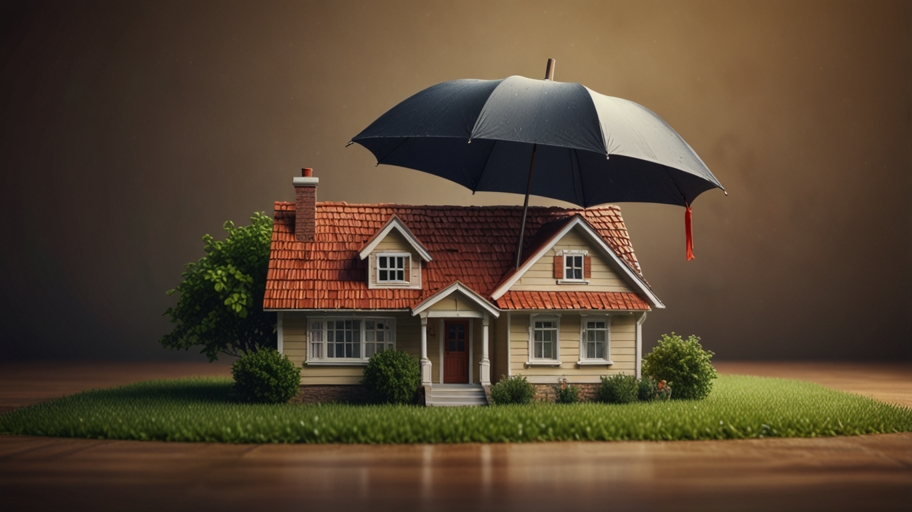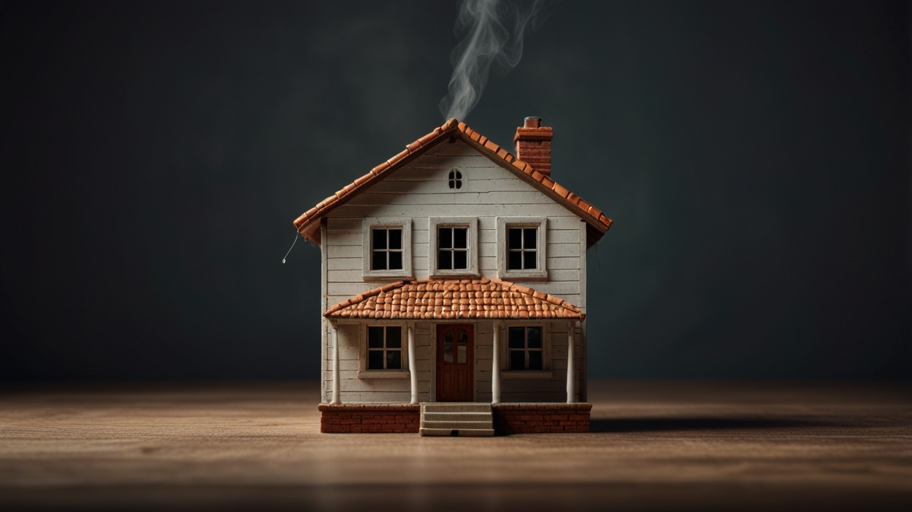Home Insurance 101: Protecting Your Biggest Investment

Table of Contents
Your home is likely the largest financial investment you’ll ever make. With that in mind, ensuring it’s protected against unexpected events is critical. Home_insurance offers a safeguard, giving you peace of mind by covering damages or losses that could otherwise result in hefty out-of-pocket expenses. In this guide, we’ll walk you through everything you need to know about home_insurance, from the basics of coverage to tips on saving money.
Understanding the Importance of Home Insurance

What is Home Insurance?
Home_insurance, also known as homeowners insurance, is a type of policy designed to protect your home and personal belongings. It covers damages or losses caused by events like fires, theft, or certain natural disasters. Beyond that, most policies also offer liability protection, which helps cover legal expenses if someone is injured on your property.
Why Do You Need Home Insurance?
Home_insurance isn’t just about protecting your house’s physical structure. It also ensures that if disaster strikes, you won’t be left financially crippled. Moreover, if you have a mortgage, your lender will require you to carry adequate coverage as part of the loan agreement.
Key Components of a Home Insurance Policy
Dwelling Coverage
Dwelling coverage refers to the portion of your home_insurance policy that protects the structure of your home itself—walls, roof, floors, and other attached features. It also often extends to attached structures like garages.
Personal Property Protection
Personal property coverage helps protect your personal belongings, including furniture, electronics, clothing, and other items inside your home. It can also extend to items stolen or damaged outside your home, like your bicycle or laptop.
Liability Coverage
Liability coverage is essential if someone gets injured on your property. This part of your home insurance helps cover medical bills, legal fees, and potential settlements if you’re found responsible.
Additional Living Expenses (ALE) Coverage
If your home becomes uninhabitable due to a covered disaster (like a fire), ALE helps pay for temporary living expenses such as hotel stays, meals, and other costs of living while your home is being repaired.
Types of Home Insurance Policies
Home-insurance comes in several forms, each providing different levels of protection. Understanding the differences can help you choose the right one for your home.
HO-1: Basic Form
The HO-1 policy is the most limited type of home insurance, covering specific perils like fire, theft, and vandalism. However, many insurance companies no longer offer this type due to its narrow scope of protection.
HO-2: Broad Form
An HO-2 policy provides more comprehensive coverage than HO-1 by protecting against a wider range of perils, including things like falling objects and damage from electrical surges.
HO-3: Special Form
HO-3 is the most common type of homeowners insurance. It covers all perils except those specifically excluded, giving you broad protection for your home and personal belongings.
HO-5: Comprehensive Form
The HO-5 policy is similar to HO-3 but offers even broader protection. It covers both your dwelling and personal belongings on an open-perils basis, meaning it includes everything unless explicitly excluded.
How to Determine the Right Coverage for Your Home

Assessing the Value of Your Home and Belongings
The first step in determining the right amount of home insurance coverage is to assess the current value of your home and personal property. Ensure that your policy reflects the true replacement cost of your house and the actual value of your belongings.
Understanding Replacement Cost vs. Actual Cash Value
There’s a significant difference between replacement cost and actual cash value. Replacement cost covers the expense of repairing or rebuilding your home at current market rates, while actual cash value takes depreciation into account, meaning you may receive less than the cost to fully rebuild or replace items.
Common Exclusions in Home Insurance
While home insurance covers many events, some exclusions may leave you vulnerable if you’re not aware of them.
Natural Disasters
Most standard home insurance policies don’t cover floods or earthquakes. You’ll need to purchase separate flood or earthquake insurance if you live in high-risk areas.
Wear and Tear
Home insurance doesn’t cover damage due to normal wear and tear or maintenance issues. For example, if your roof starts leaking because of age, that’s your responsibility to fix it.
Intentional Damage or Neglect
Damage resulting from intentional acts or neglect is excluded. If you purposely damage your property or fail to maintain it properly, your insurance won’t cover the repairs.
Factors That Affect Home Insurance Premiums
Several factors can influence the cost of your home insurance policy, and understanding these can help you manage your premiums effectively.
Location of Your Home
The location of your home plays a major role in determining your insurance premium. Homes located in areas prone to natural disasters or high-crime neighborhoods tend to have higher insurance rates.
Home’s Age and Condition
Older homes typically cost more to insure due to the likelihood of outdated electrical, plumbing, and roofing systems that could be more prone to damage.
Security Features and Safety Precautions
Homes equipped with modern security systems, smoke detectors, and fire alarms may qualify for discounts on premiums. These features reduce the risk of damage or loss, making your home a safer bet for insurers.
How to Save Money on Home Insurance
Bundling Policies
One of the easiest ways to save on home insurance is to bundle it with other policies, such as auto or life insurance, with the same provider. Insurers often provide discounts when you carry multiple policies with them.
Increasing Your Deductible
Raising your deductible, the amount you pay before insurance kicks in can lower your premium. Just ensure you have enough savings to cover the higher deductible if you need to file a claim.
Installing Home Security Systems
Adding home security features like alarm systems, surveillance cameras, and deadbolt locks not only protects your home but can also lower your insurance premium. Many insurers offer discounts for homes with enhanced security.
Filing a Home Insurance Claim
When disaster strikes, knowing how to file a claim can make a big difference in how quickly and smoothly you receive compensation.
Steps to Take After Damage Occurs
After your home is damaged, take immediate steps to prevent further damage, such as covering broken windows. Document everything with photos and written descriptions before contacting your insurer to start the claim process.
Working with Insurance Adjusters
Insurance adjusters will assess the damage and determine how much compensation you’ll receive. Be prepared to provide documentation and evidence to support your claim, and don’t be afraid to negotiate if you believe the initial assessment is too low.
Importance of Reviewing and Updating Your Policy

Regularly Assessing Changes in Your Home’s Value
As home values increase, so does the cost of rebuilding. Make sure your coverage limits keep up with inflation and any upgrades you make to your home.
Keeping Your Policy Aligned with Major Life Changes
Life changes like marriage, having children, or acquiring valuable assets can all affect your insurance needs. It’s essential to review and update your policy as your life evolves.
Conclusion: Protecting Your Home and Peace of Mind
Home insurance is not just about safeguarding a building; it’s about protecting your biggest investment and ensuring that you and your family are financially secure in the event of unexpected disasters. By understanding the ins and outs of your policy, shopping around for the best deal, and regularly reviewing your coverage, you can rest easy knowing that your home is protected.
FAQs
What does a typical home insurance policy cover?
A standard home insurance policy typically covers damage to your home’s structure, and personal property, liability for injuries on your property, and additional living expenses if your home becomes uninhabitable.
How much home insurance do I need?
You should have enough insurance to cover the full cost of rebuilding your home, plus additional coverage for personal belongings and liability protection.
Can I change my home insurance policy at any time?
Yes, you can adjust your home insurance policy during the term or when it’s up for renewal. However, there may be fees for canceling a policy early.
Does home insurance cover natural disasters like floods and earthquakes?
Standard home insurance does not cover floods or earthquakes. You’ll need to purchase separate policies specifically for these types of disasters.
What should I do if my home insurance claim is denied?
If your claim is denied, review the denial letter for specific reasons and gather supporting evidence to challenge the decision. You may also want to consult with an attorney or an insurance advocate.



